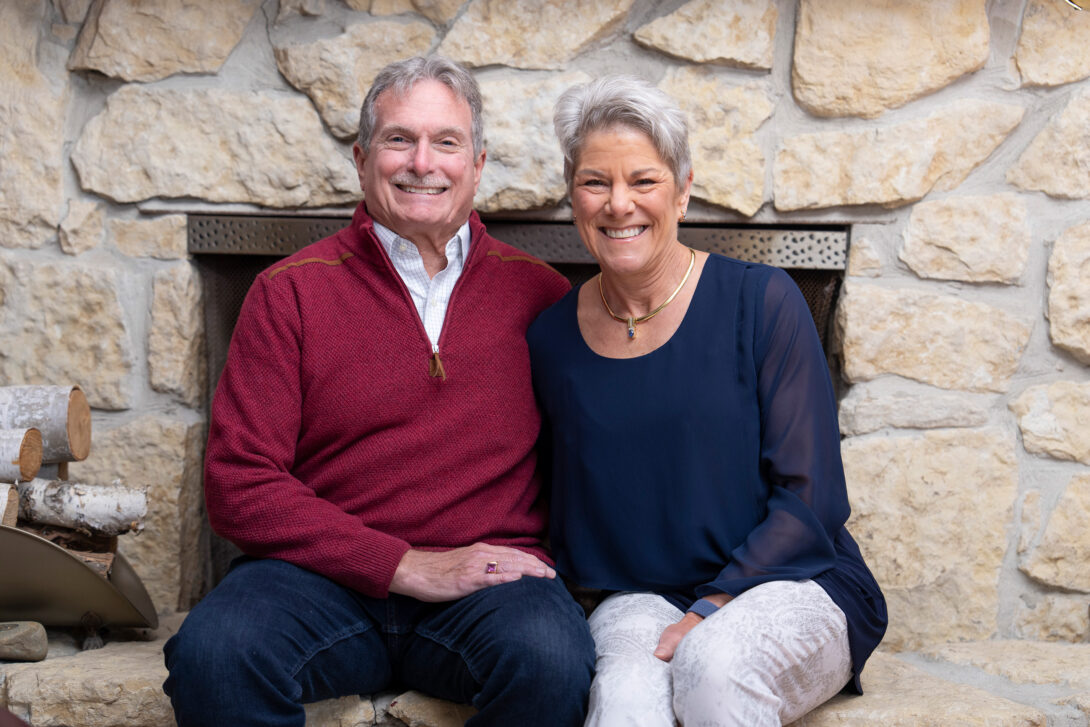A Gift to Shape the Pharmacy Profession
A Gift to Shape the Pharmacy Profession

Jim Mowry, BS ’77 and Judi Jacobi Mowry have spent their lives shaping the careers of future pharmacists.
Today, they are shaping the future of the profession with their selfless generosity in establishing two gifts to the UIC College of Pharmacy:
The UIC Pharmacy Mowry-Jacobi Clinical Toxicology Fund will support clinical toxicology efforts within pharmacy. The fund will promote careers and enhance research and knowledge in the field. This could include, but not be limited to, student education and training activities, post-graduate training, faculty and student research and scholarship, or travel; and special lectureships or symposia in the College.
The Mowry-Jacobi Clinical Pharmacy Practitioner Scholarship Fund supports PharmD students with preference for students with an interest in pursuing a position in the hospital setting with a focus on either critical care or emergency medicine/toxicology.
The UIC COP owes much of its reputation as a top-ranked institution to the successful alumni and benevolent supporters on which its legacy has been built, and Jim and his wife Judi are a prime example of such ardent champions. Now retired from their pharmacy careers, the Mowrys are self-confessed, lifelong philanthropists who not only made countless contributions to the field during their careers but have made it their continued mission to positively impact future generations of practitioners.
One could say that Jim’s path to UIC–and even his own career in toxicology–were directed by happenstance. Originally from Carbondale, Jim had planned to attend the University of Colorado to pursue his BS in pharmacy. At the last minute, Colorado decided not to admit any out-of-state students, and the pressure was on to find a program whose deadline hadn’t yet passed.
“I had just a week to get an app in [to UIC], so my dad and I got on the train and hand-delivered my application,” Jim recalls.
Judi, on the other hand, has pharmacy in her blood. Her pharmacist grandfather owned what she calls “the classic little corner store” in the Milwaukee area. She spent her high school summers working for a local retail pharmacy and went on to complete her BS at Purdue, followed by Doctor of Pharmacy training at the University of Minnesota–where Jim earned his PharmD two years prior.
After Minnesota, Jim was set to return to Chicago for a position at Northwestern Memorial Hospital.
“As it seems to be with my career,” says Jim, “that job fell through about a month before I was supposed to start.” So, when he got wind that a friend was doing a toxicology residency at the University of Tennessee, Jim interviewed and landed a spot.
Meanwhile, after Minnesota, Judi joined The Ohio State University as one of its first residents in critical care pharmacy before securing a position at a central Indiana hospital and eventually ending up at Methodist Hospital of Indiana in Indianapolis, where she spent the last 24 years of her practice. She also served as adjunct faculty for Purdue and Butler Universities. During her career, she established the Methodist Hospital/Indiana University Health critical care pharmacy residency, through which she trained 18 residents.
With a tip from Judi, Jim became director of the Indiana Poison Center, also volunteering as adjunct faculty at Purdue University, Butler University and the Indiana University of School of Medicine.
“In addition to running the Indiana Poison Center, I was a bedside toxicologist,” Jim explains. “It was pretty much the wild west back then–not many physician toxicologists. Eventually, we developed a medical toxicology consulting service in the Academic Health Center hospitals in addition to overseeing the thousands of calls managed by the poison center.”
As director of the Indiana Poison Center, he developed a clinical toxicology rotation for pharmacy students and participated in a medical toxicology fellowship with his physician colleagues, though which he’s trained 18 physician fellows in toxicology and facilitated clinical toxicology training for innumerable pharmacy students and medical residents since he began his career in 1982–which is the year he and Jim married and made their home in Lebanon, Ind., halfway between Indianapolis and Lafayette.
Beyond their career accomplishments, Jim might be understating when he says, “We’ve always been very involved in giving back to our profession.”
A past president of the American Board of Applied Toxicology, he also served on boards for the American Academy of Clinical Toxicology as well as the American Association of Poison Control Centers and continues to volunteer for them. Judi is a past president of the American College of Clinical Pharmacy and the Society of Critical Care Medicine and was an engaged member of other organizations.
Considering their professional activities, it seems fitting that the two met–despite both attending the same school–at an ASHP Midyear Meeting in San Francisco.
“We both ended up a long way from those little corner stores,” Judi comments.
When considering their legacy, the couple decided that they wanted to support the training of changemakers in the profession.
“Comprehensive medication management” is the model I tried to follow,” says Judi. “It put me, as the pharmacist, in charge of all medications–picking the right drug, monitoring its use and determining when it’s no longer needed. That was my approach, and that’s how we trained our students.”
Jim and Judi both feel, however, that today’s retail model doesn’t adequately prioritize direct patient care.
“Our knowledge of drugs is so much more than anybody else, yet we’re often not in a position to use that to the fullest,” Jim explains, adding that many pharmacists aren’t able to practice to the top of their license.
They want to change that.
“During our careers, ‘giving back’ meant ‘volunteerism.’ Now that we’re not ‘working’ anymore,” says Jim, “we think it’s time to help advance the profession as a whole. The only way you can do that is by advancing training for pharmacists.”